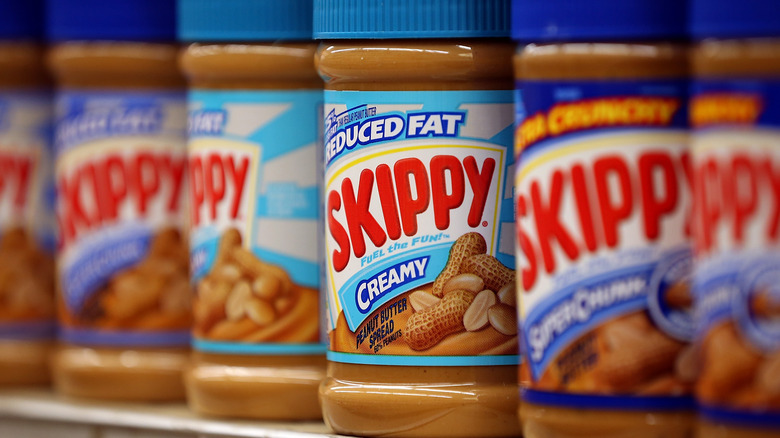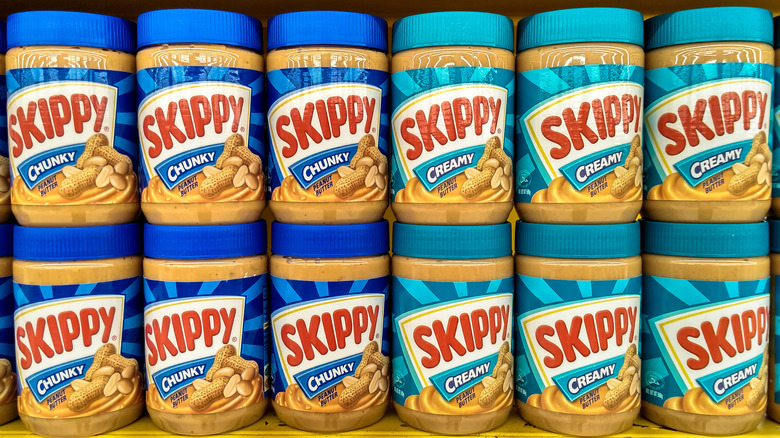Skippy Just Recalled 3 Types Of Peanut Butter For A Scary Reason
Before whipping up your favorite old-fashioned peanut butter fudge recipe, you may want to scrutinize your jar of Skippy a little more closely. This week, the peanut butter giant has recalled thousands of cases of the creamy condiment over contamination concerns. According to a March 30 FDA announcement, Skippy Foods — the world's second most popular peanut butter brand — is recalling over 160,000 pounds of four items: Skippy Reduced Fat Creamy Peanut Butter Spread, Skippy Reduced Fat Super Chunk Peanut Butter Spread, Skippy Peanut Butter Blended With Plant Protein, and Skippy Reduced Fat Creamy Peanut Butter Spread Club packs.
According to the peanut butter producer, the recalled products are being yanked from shelves around the country over concerns that pieces of stainless steel from the company's manufacturing equipment may have found their way into some of the jars. At the time of writing, there have been no reports of consumers finding metal fragments in their own jars.
The affected jars of peanut butter were distributed to 18 states
According to Skippy, the potentially impacted jars of peanut butter were distributed to the following states: California, Connecticut, Delaware, Florida, Hawaii, Illinois, Indiana, Kansas, Massachusetts, Minnesota, Missouri, North Carolina, Nebraska, New Hampshire, New Jersey, New York, Oklahoma, and Wisconsin.
To find out if your Skippy peanut butter jars are affected by the recall, first check the UPC code, found just under the barcode. The recalled jars have a UPC code of 37600-10520, 37600-10667, 37600-10499, or 37600-88095. If your jar has one of the above codes, read the best-by date printed on the lid. If it falls on May 4, 5, 6, 7, or 10, 2023, and matches the item number found on the Skippy website, don't consume the product. Instead, the brand urges customers to return affected jars in exchange for new ones — or to call its customer service line. No other varieties or batches of Skippy peanut butter have been impacted by the potential metal contamination at this time.

